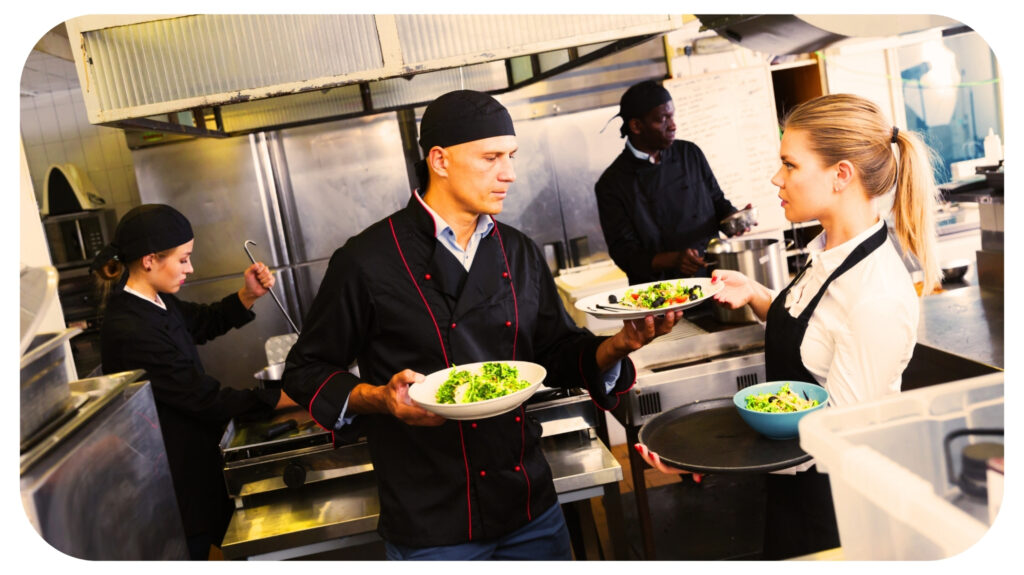Training Staff for Sustainability: Matt Frauenshuh Discusses Best Practices for Franchise Restaurants

The restaurant industry is at a turning point, with customer demands for eco-friendly dining pushing sustainability to the forefront.
Restaurants, especially franchises, must now balance meeting these expectations with maintaining their business viability through sustainable practices. Staff play a crucial role in a franchise restaurant’s sustainability efforts. Their daily choices, from sourcing ingredients to managing waste and energy use, significantly impact the environment. Effective staff training is key, to teaching employees to become advocates for environmental responsibility.
Seasoned CEO, Matt Frauenshuh lends his insight and experience leading DQ Grill & Chill’s largest franchisee to explore effective ways to train franchise restaurant staff in sustainability. Frauenshuh has built the Fourteen Foods organization to include 240+ Dairy Queen locations across the U.S.
Frauenshuh examines the complex role of sustainability in franchising and offers practical tips for incorporating it into staff training, helping franchises meet consumer expectations and leading the industry towards a greener future.
Understanding Sustainability in Restaurants
In the restaurant world, specifically in franchises, sustainability means more than just being eco-friendly. It’s about balancing profit, social good, and caring for the environment. This includes reducing carbon footprints, adapting to economic changes, and improving community welfare.
“Sustainable practices in restaurants go beyond the kitchen,” says Matt Frauenshuh. “They involve reducing the environmental impact through saving resources, cutting waste, and being energy-efficient.”
This not only helps the environment but also makes the restaurant a positive community member. For the business, it’s a smart move. As customers care more about where their food comes from, being sustainable can set a restaurant apart, save costs, and make it more efficient and adaptable.
Today’s diners want more than tasty food. They want to dine at places that share their environmental values. This shift has made sustainability a key factor in choosing where to eat. Restaurants responding to this trend are offering locally sourced and organic foods, using eco-friendly packaging, and being open about where their food comes from. For franchises, adapting to this trend is crucial for staying relevant and successful.
Integrating Sustainability into Staff Training
Training staff in sustainable practices is key for franchise restaurants. It starts with thorough onboarding, where new employees dive deep into the restaurant’s eco-friendly values and practices. They learn about responsible sourcing, waste management, and energy saving, understanding how their role impacts these areas. Sustainability training isn’t a one-off event. Ongoing training keeps staff up to date with the latest in eco-friendly practices, fostering a culture of innovation and adaptability.
Creating a sustainable mindset among employees is crucial. This involves open communication, encouraging staff to share ideas and be part of the sustainability journey. Workshops, discussions, and meetings focused on green topics make employees active participants, not just listeners. Recognizing and rewarding staff for their eco-friendly efforts is important. This could be through mentions in newsletters, gifts, or other incentives. Making sustainability part of performance reviews shows how seriously the restaurant takes these practices.

Tackling Challenges in Sustainability Training
Franchise restaurants often face hurdles when adopting sustainable practices. Understanding these challenges is key to finding solutions. Franchises typically deal with two main issues—budget constraints and staff resistance to change. Sustainability often needs upfront investment, which can be tough on the budget.
Notes Matt Frauenshuh, “Employees used to certain ways might resist new, eco-friendly methods.”
Addressing financial constraints in franchises doesn’t always require big investments. Starting with low-cost sustainability measures can make a significant impact. For instance, switching to energy-efficient lighting is a simple yet effective step. It reduces energy consumption and lowers utility bills, offering a win-win for both the environment and the business. Another area to focus on is waste reduction. This can be as straightforward as implementing recycling programs or reducing unnecessary packaging. Such measures not only cut down waste but can also lead to cost savings in waste management.
A common challenge in this process is staff resistance, often rooted in a lack of understanding or fear of change. To tackle this, clear and effective communication is key. Educating staff about the benefits of these changes, both for the environment and the business, helps in aligning their perspectives with the new practices. Hands-on training sessions can demystify new procedures, making them more approachable.
“Engaging staff in the decision-making process also helps. When they contribute ideas and feel heard, they’re more likely to embrace the changes,” says Frauenshuh.
Ultimately, these low-cost sustainability steps, combined with a well-informed and involved staff, pave the way for a smoother transition to more sustainable practices in franchise operations. Clear communication is crucial here. This approach can turn resistance into support.
Continued Sustainability in Franchises
The industry is adapting to new consumer preferences, environmental needs, and economic realities. Sustainability in restaurants requires ongoing effort, innovation, and adaptation. The future of sustainability in franchise operations is not just about the immediate changes, but about setting a precedent for ongoing innovation and adaptation. As these businesses continue to embrace low-cost, effective sustainability measures, they pave the way for a new standard in the industry.
This journey opens up opportunities for franchises to be trailblazers in eco-friendly practices, inspiring others and setting new benchmarks. The role of staff in this evolution is crucial. As they become more engaged and knowledgeable, they transform into active participants in this green revolution. The momentum gained from these initial steps will likely spur further advancements, integrating sustainability deeper into the core business strategies. This forward-looking approach is more than a response to current trends. It’s the commitment to a sustainable future, where environmental responsibility and business success go hand in hand, benefiting not just the franchises but the communities they serve and the planet as a whole.
Recommended For You
How to Optimize Your Accounting Department Efficiency in Small Business
Most Inside
Most Inside offers high-quality recommendations and valuable updates to enhance all aspects of your life, providing premium guidance and enriching experiences.




